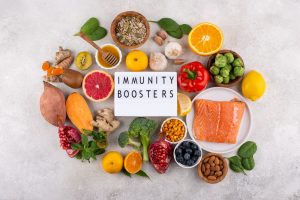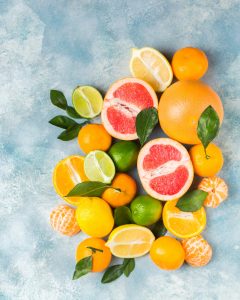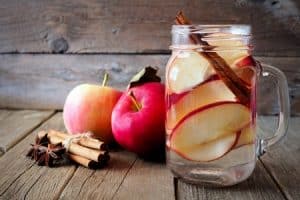Antioxidants are essential for protecting your body against oxidative stress and inflammation, which can play a role in cancer progression. For individuals with breast cancer, a diet rich in antioxidants can help reduce damage to cells, support the immune system, and manage treatment side effects. However, it’s important to note that some antioxidants can interact with cancer treatments like chemotherapy or radiation, so it’s essential to balance the intake of antioxidant-rich foods under the guidance of your healthcare provider. Read on to learn about the Antioxidants to eat and avoid in breast cancer.

Antioxidants to Eat and Avoid in Breast Cancer
Here’s a list of antioxidants to eat and avoid during breast cancer treatment.
Antioxidants That Help in Breast Cancer
These antioxidants are generally safe and beneficial for most individuals with breast cancer, as they help reduce oxidative stress and inflammation:
1. Vitamin C
Vitamin C is a powerful antioxidant that supports the immune system, enhances wound healing, and may help reduce the side effects of treatments like chemotherapy.

- Sources:
- Citrus fruits: Oranges, lemons, grapefruits
- Berries: Strawberries, blueberries, raspberries
- Bell peppers
- Kiwi, guava, papaya
- Leafy greens like spinach and kale
2. Vitamin E
Vitamin E is another potent antioxidant that helps protect cells from damage, supports the immune system, and is known for its role in skin health, especially during radiation treatments.

- Sources:
- Nuts and seeds: Almonds, sunflower seeds
- Avocados
- Olive oil and vegetable oils
- Spinach, broccoli, and other leafy greens
- Whole grains like wheat germ
3. Beta-Carotene (Vitamin A)
Beta-carotene helps boost immune function and skin health and has anti-inflammatory properties. It plays a role in cellular repair, essential for recovery after surgery or treatment.

- Sources:
- Orange and yellow vegetables: Carrots, sweet potatoes, pumpkin
- Dark leafy greens: Kale, spinach
- Red bell peppers, tomatoes
4. Selenium
Selenium is a trace mineral with antioxidant properties that can support the immune system and may help reduce inflammation. Some studies suggest selenium may help improve the effectiveness of chemotherapy.

- Sources:
- Brazil nuts (rich in selenium)
- Whole grains like brown rice and oats
- Eggs and dairy products
- Sunflower seeds
5. Polyphenols
Polyphenols are plant compounds with strong antioxidant properties. They have anti-inflammatory effects and may help prevent the spread of cancer cells by affecting cell signaling pathways.

- Sources:
- Green tea (rich in catechins)
- Berries like blueberries, blackberries, and raspberries
- Red wine (in moderation)
- Dark chocolate (with 70% or higher cocoa content)
- Olive oil
6. Flavonoids
Flavonoids are powerful antioxidants that may help in cancer prevention by modulating inflammation and protecting DNA from oxidative damage.

- Sources:
- Apples
- Onions
- Citrus fruits
- Berries
- Green tea
7. Lycopene
Lycopene is a carotenoid found in red and pink fruits. It has antioxidant properties and may help inhibit the growth of cancer cells.

- Sources:
- Tomatoes (especially cooked, as lycopene is more bioavailable)
- Watermelon
- Pink grapefruit
- Red peppers
_________________________________________________________________________________________
www.dietburrp.com (Article Sourced Website)
#Antioxidants #Eat #Avoid #Breast #Cancer #Dietburrp
